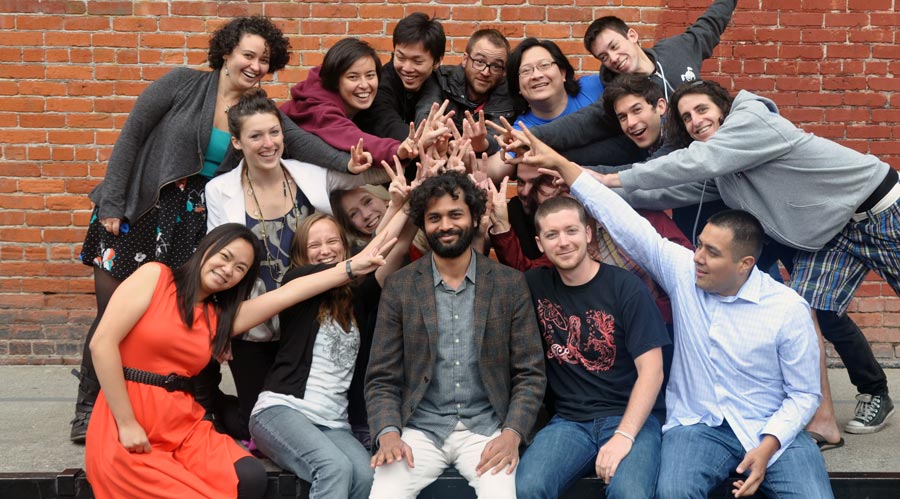Volano Solutions



If you haven’t noticed, it seems as though software code schools and boot camps have been opening up across the country faster than you can say JavaScript. There are some important distinctions to be made regarding this movement and the reason people are filling these classes up. Angela Chen with the Wall Street Journal wrote a nice piece on this topic recently and differentiated the types of classes being offered and the people taking them. As an Omaha Nebraska-based software consultancy, we understand firsthand the challenges businesses face finding good junior and senior level software developers and have been paying attention to this recent software school phenomenon.
Who Goes to Code School?
Traditional elementary and middle school curriculum is devoid of scratch programming and web design. Many parents however want their children exposed to the technology at an early age. Code schools appeal to job seekers as well who realize that there are good career opportunities available and a market for junior level developers. Software Programming teaches logic, higher-level math and reinforces concepts in learning that have applicability outside of the development environment. Corporate managers benefit from learning enough code to be dangerous so that they can more effectively manage software development staff. Code schools like local Interface and The Omaha CodeSchool strive to get software neophytes into technology careers, promising to “turn beginners into hireable web developers in 12 weeks,” focusing as much the mechanics of coding as on the developer mindset and way of thinking and approaching problems. The discussion about the software development approach and coding style is one that comes up here frequently. The challenge is to understand the client need and business process and develop the solution that is right for them and scales. This requires a level of thinking and approach that is critical to the building and maintaining of a system.
Response
The response to code schools has been mostly positive. The World Herald ran an article recently on Omaha Code School’s Sumeet Jain who felt Omaha needed a way to get potential software talent into smaller and mid-sized companies. Some in the software development world are concerned that 12 weeks can’t scratch the surface for teaching coding skills. However, the schools are set up as an intensive introduction and provide the basic framework from which new skills can be acquired and built. Ideally local code schools will help encourage young talent to stay in Omaha as well. This is not an abstract concept. Recently Mindmixer CEO and co-founder Nick Bowden decided to consolidate his offices in Kansas City , in no small part because a greater talent pool of developers resided outside of Omaha. In that context, the discussion about the efficacy of code schools, at least locally changes the question from are they relevant to what other things can we do to attract, develop and retain people that might be passionate about writing software code. Traditional educational institutions are opening up on-line lectures and classes to the general public and the way in which we learn is changing as the technology that has changed the way we do business continues to evolve. Perhaps code schools, as they mature, will provide outlets to students who might not have otherwise realized a hidden passion for code.
February 12, 2025
Have you ever purchased a used car where the price tag was cheap? You may find yourself a week after the purchase at the intersection of 72nd and Dodge during the morning commute with a blown transmission and regret over a financial decision based solely on saving some money. Talk about a lemon of a […]
November 14, 2024
When you think about how Volano Software employees spend their time, you may envision one of our developers in jeans and their favorite gaming t-shirt-wearing headphones working on custom software. Well, that would probably be accurate. However, we also enjoy watching educational videos about workflow on YouTube in our free time. Yeah. We’re predictable. On […]
October 9, 2024
Volano Software further commits to the Omaha community by partnering with NAM to offer custom software solutions to nonprofits in Nebraska and Western Iowa. Omaha, NE, October 2024 — Volano Software, a custom software development company, is proud to announce its partnership with the Nonprofit Association of the Midlands (NAM). This partnership brings Volano Software […]
September 28, 2024
Finding a software solution to solving a business challenge can be overwhelming. We have been helping clients find the best approach for their industry challenges since 2007. The result has always been a solution based on your unique situation for a better workflow. One of the most popular questions we hear is whether to buy […]
August 21, 2024
Fall is nearly here. That means students return to school, parents settle into their routines, and summer vacations are distant memories. It also means that the Volano Summer Internship Program is now a wrap. Our two summer interns, Daniel and Micah have packed up and returned to their Fall Semester of school. Before they left, […]
August 20, 2024
OMAHA, NEBRASKA, Volano Software Company Applications for the Nebraska Innovation Fund (NIF) Prototype Grants are open now for Nebraska-based businesses searching to take their business tech from a napkin sketch to a full-blown prototype. At Volano Software, we are highly familiar with this program. In 2023, we were awarded the matching grant for our software […]